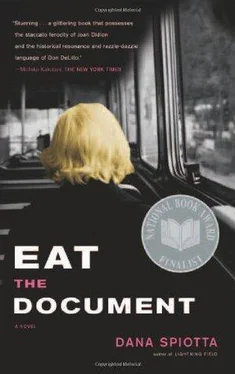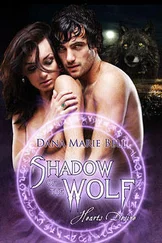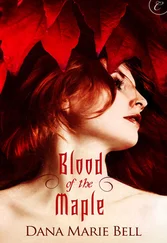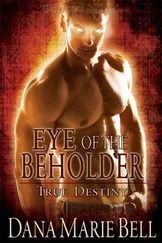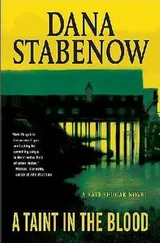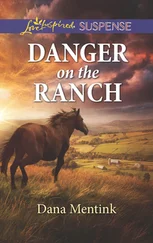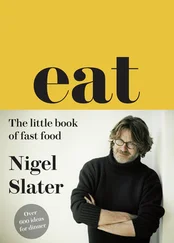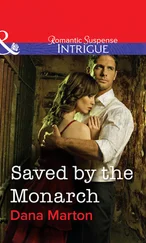Dana Spiotta - Eat the Document
Здесь есть возможность читать онлайн «Dana Spiotta - Eat the Document» весь текст электронной книги совершенно бесплатно (целиком полную версию без сокращений). В некоторых случаях можно слушать аудио, скачать через торрент в формате fb2 и присутствует краткое содержание. Год выпуска: 2006, Издательство: Scribner, Жанр: Современная проза, на английском языке. Описание произведения, (предисловие) а так же отзывы посетителей доступны на портале библиотеки ЛибКат.
- Название:Eat the Document
- Автор:
- Издательство:Scribner
- Жанр:
- Год:2006
- ISBN:нет данных
- Рейтинг книги:3 / 5. Голосов: 1
-
Избранное:Добавить в избранное
- Отзывы:
-
Ваша оценка:
- 60
- 1
- 2
- 3
- 4
- 5
Eat the Document: краткое содержание, описание и аннотация
Предлагаем к чтению аннотацию, описание, краткое содержание или предисловие (зависит от того, что написал сам автор книги «Eat the Document»). Если вы не нашли необходимую информацию о книге — напишите в комментариях, мы постараемся отыскать её.
shifts between the underground movement of the 1970s and the echoes and consequences of that movement in the 1990s. A National Book Award finalist,
is a riveting portrait of two eras and one of the most provocative and compelling novels of recent years.
Eat the Document — читать онлайн бесплатно полную книгу (весь текст) целиком
Ниже представлен текст книги, разбитый по страницам. Система сохранения места последней прочитанной страницы, позволяет с удобством читать онлайн бесплатно книгу «Eat the Document», без необходимости каждый раз заново искать на чём Вы остановились. Поставьте закладку, и сможете в любой момент перейти на страницу, на которой закончили чтение.
Интервал:
Закладка:
Nash would nearly give up on them, bored, tired, but then he would notice something to make him interested again. Like the kid he saw the other day as he walked through a test held in Pioneer Square. He was a short, chubby middle-twenty in all-white cotton like an ice-cream man. At some Reclaim the Parking Lot event, or a Liberate the Cement something. There among the usual kids stood this lone fellow in a white coat and white shirt and even a white tie. Spotless. He held a hand-lettered sign over his head, his face expressionless and deadpan. The sign said
World War VI will be fought in my uterus
He held the sign aloft and never altered his stance of intense gravitas. Brilliant. Nash loved kids like that, kids that surprised you and made you feel old and out of it.
He tried to be patient. He would take a deep breath and listen to them. And he discovered that he liked some of them okay, they were funny and smart. They were idealistic and angry. And, let’s not forget, they were stealing. One other way Nash dealt with the epidemic thievery was to hire the very people he suspected of stealing. Particularly if he found them likable and not spoiled. For example:
Roland, the coffee guy. Nash first noticed him hunched over the edge of the table, drawing in a sketch pad, never looking directly at anyone. Roland drew retro Utopian-looking skyscrapers straight out of Tomorrowland or Metropolis with Buckminster Fuller domes in meticulous, boyish detail. He drew mega-tech vehicles and environmental disasters. He wore the same long black duffel coat every single day, no matter how warm it was. Nash figured you gotta love a middle-teen like that. He watched Roland rip off some of the graphic novels — beautiful, expensive books. Nash gave him a job and a store discount. Roland liked working there, he seemed to view the place as his home. Nash was certain Roland was still stealing.
Or Sissy. She was impossible to not notice, with her shiny blue-black hair, sharp, high cheekbones, and wide-set, overly made-up eyes. Nash admired how she was so very pretty but did everything in her power to dissuade you of it. Not just the overwrought makeup, which at a certain thickness moved from augmentation to ironic meditation, but a general ultra-ornamentation. Multiple piercings and tattoos, of course, but she also wore weird, pinned-up clothes — rags that she got at thrift stores in a variety of sizes, often in synthetic fabrics, that she safety-pinned around legs and waist and shoulders. She layered mummy style. Half the time it actually worked; the jumble came across as a planned, intended thing. The other half of the time she looked like a disaster, a freak, a bag woman.
She also had the vapor-thin body of so many of the girls around. They all seemed to be either sensitive-girl doughy or about to disappear. Sissy had a painful, deeply wrenched thinness that radiated hunger but, oddly, not fragility. In fact what came through was a steely, obdurate intractability. He couldn’t quite read that yet — what that whip-thin look meant to these kids. Was it cultural capitulation or rebellion against being a body in general? Against needing to consume at all? Sissy had stolen at least one book, the Vicious Nation’s Biographical Dictionary of Incorrigible and Inscrutable Women . It was almost a junk book of shallow, easy-to-read entries, but somehow it exceeded its own intentions by including some cool and obscure figures like Voltairine De Cleyre, mistress of nineteenth-century direct action, or forgotten-but-verging-on-newly-cool second-wavers like Shulamith Firestone. It was a hefty forty-five-dollar boutique-press monster of a book. As if he wouldn’t notice that gone missing. She looked at it every single time she came in, and then it disappeared. But Sissy also bought things. Little broken-down used books of poems. Kids’ science encyclopedias from the ’60s. Amazing little artifacts that Nash collected for someone just like her. Every time he sold one of his strange used books, he felt vindicated and happy. He hired Sissy to run the evening schedule of group meetings. He told her he needed her help because she knew everybody. Which was true. She also continued to steal.
His hiring strategy may not have headed off thievery, but Nash learned not to take it personally that they stole stuff. As he talked with them, said hello, waited on them, even answered questions, he knew it wasn’t personal because they thought so little about him. He observed and even studied them and all their foibles, but he knew the interest was not reciprocated. They never betrayed the slightest curiosity about him or even addressed him by his name.
However, there was one way Nash was pretty certain they did refer to him, although he never actually heard it said. Loser . This was an inexplicably resilient word, the epithet that would be hurled at someone and then no more needed to be said. Like the word suck, loser had, despite its long overuse, retained its capital among adolescents. No intensifiers made them work better; these were terminal, face-slap, teleologically absolute terms. And both words nihilistically conveyed no real information, just a bottomless disdain. Nash imagined he was often described by these kids as a loser and also someone who sucks . As in that loser sucks . In this respect, as in many others, Miranda was a different case, right from the beginning. Miranda actually initiated conversations with him.
“You shouldn’t drink Coke. You guys shouldn’t even be selling Coke,” she said to him one afternoon, just when he was convinced he truly had at last become invisible. He already knew her name, Miranda Diaz. She was the newer kid. The one he hadn’t noticed stealing. Her face looked ridiculously young to him, smooth and unmade-up, but he figured her for an end-teen. She sat next to him as he took his break. He had just finished hours of used-book pricing and wanted a minute to relax before the evening’s events were under way. He took a swig of his Coca-Cola and nodded at her.
“Yeah, as it happens we don’t sell much, uh, Coca-Cola,” he said. “And, okay, I guess I shouldn’t drink it, but I do.”
She looked surprised for a second, then smiled and shrugged.
“I like this place. It’s great,” she said, again smiling. She didn’t look as young to him now. Maybe it was the way her expression lingered in her face even after she stopped smiling. It was playful, wasn’t it?
“Are you the owner?” she asked.
“Nope.”
She looked at him as though she wanted him to elaborate, and when he said nothing more, she laughed again.
Miranda started to hang around the store at the beginning of the summer. Sissy brought her, or they knew each other. He guessed Miranda was another well-fed suburban girl; usually they look like that when they first move to the city, a little too soft and a little too anxious. Her arms perpetually folded across her chest, legs crossed and then crossed again with her toe hooked under her ankle. Her round face and heavy-lidded dark eyes were offset by a constantly working, overexpressive brow. A little bit of a scowler, this girl, until she suddenly broke into that easy all-points, grownup woman smile. He decided he liked her. She always said hello to him and cleaned up after herself. She studied the flyers and even started to come to a few of the tester meetings.
Only months earlier Nash had inaugurated the night meetings with a few groups he helped organize, and already it seemed everyone was an organizer. Instead of starting a band, these kids started collectives and fronts and miniarmies. The store even had a wait list for some of the slots. He let Sissy handle all that.
Nash should have felt Prairie Fire as meeting space was a great success, but he found too many of these groups indistinguishable. They wanted to demonstrate in front of a senator’s office with placards. Or they wanted to march papier-mâché effigies of the president to city hall. Some groups tended to be unimaginative and self-serious in Nash’s estimation. This inspired Nash, against his better judgment, to continue devising some groups of his own.
Читать дальшеИнтервал:
Закладка:
Похожие книги на «Eat the Document»
Представляем Вашему вниманию похожие книги на «Eat the Document» списком для выбора. Мы отобрали схожую по названию и смыслу литературу в надежде предоставить читателям больше вариантов отыскать новые, интересные, ещё непрочитанные произведения.
Обсуждение, отзывы о книге «Eat the Document» и просто собственные мнения читателей. Оставьте ваши комментарии, напишите, что Вы думаете о произведении, его смысле или главных героях. Укажите что конкретно понравилось, а что нет, и почему Вы так считаете.
